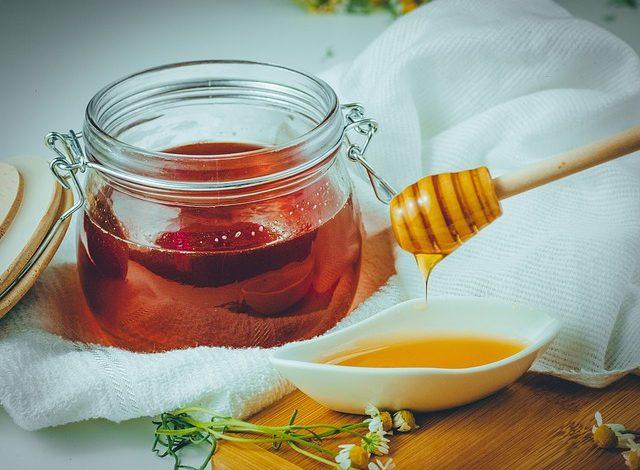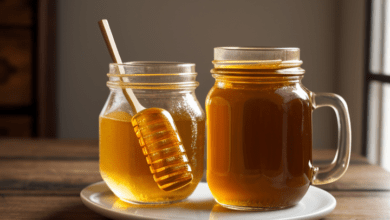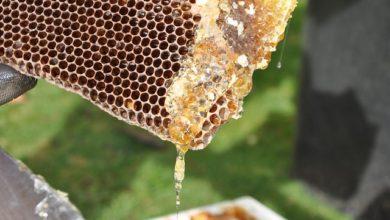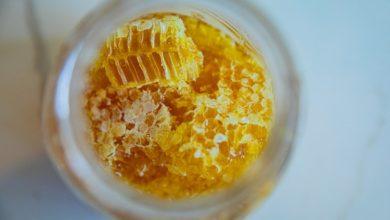Raw Honey Benefits

There are several health advantages and medical uses for raw honey, which has been used as a treatment for centuries. Even in hospitals, it is employed as a wound care method. The raw or unpasteurized form of honey is very beneficial for many health conditions.
The majority of the honey you may buy in supermarkets has been pasteurized. In addition to eliminating crystallization and extending shelf life, high heat also eliminates undesirable yeast and can enhance color and texture. The procedure also results in the destruction of a large number of healthy nutrients.
Consider purchasing raw honey from a reputable local supplier if you’re interested in giving it a try.
The following list of health advantages of raw honey. To name a few:
A Good Source of Antioxidants
Many plant compounds that function as antioxidants are present in raw honey. As many antioxidants are found in some honey varieties as there are in fruits and vegetables. Your body can benefit from antioxidant protection against free radical-caused cell damage.
In addition to speeding up aging, free radicals may also play a role in the onset of chronic illnesses like cancer and heart disease.
According to research, the anti-inflammatory properties of the antioxidant components in raw honey known as polyphenols may help in preventing a variety of illnesses linked to oxidative stress.
The presence of bee pollen and bee propolis in raw honey, which may have additional advantages, is yet another advantage.
According to a 2017 review of research, raw honey may be able to protect the neurological, cardiovascular, gastrointestinal, respiratory, and even urinary systems. It may also be used to cure cancer.
Raw Honey Nutrition
The nutritional value of raw honey varies depending on where it comes from and other aspects. In general, one tablespoon of raw honey, or 21 grams, has 64 calories and 17 grams of sugar. The following micronutrients, or vitamins and minerals, are also present in raw honey, albeit at lesser levels.
• Calcium
• Magnesium
• Manganese
• Niacin
• Pantothenic acid
• Phosphorus
• Potassium
• Riboflavin
• Zinc

Raw honey is also a source of various levels of amino acids, enzymes, and other healthy substances.
Antibacterial And Antifungal Properties
Propolis in raw honey has been found to have antifungal and antibacterial activities, according to studies. With raw honey, there is considerable potential for both inside and external treatments.
Depending on the type of honey, its antibacterial or antifungal properties can vary, although some variations are being researched for particular medicinal applications, such as against illnesses linked to Candida.
Heal Wounds
Honey possesses antibacterial qualities, according to a review of studies published in 2018. Additionally, a review of studies published in 2017 hypothesized that honey, propolis, and royal jelly would be beneficial for microbial suppression and wound healing.
Recall that the honey utilized in research settings is of the medical variety, which means it has undergone inspection and has been sterilized. The use of store-bought honey for the treatment of cuts is not advised. Before taking honey for any medical conditions, always consult your physician.
Phytonutrient Powerhouse
Compounds called phytonutrients are present in plants and aid in the plant’s defense against damage. Some, for instance, protect the plant from UV rays or keep insects at bay.
Honey’s antibacterial, antifungal, and antioxidant capabilities are all due to the phytonutrients in the substance. They are also thought to be the reason raw honey has demonstrated immune-boosting and anticancer properties. Regular honey may lose these important elements if it is processed vigorously.
Help For Digestive Issues
Although there is little evidence that honey is effective in treating digestive problems like diarrhea, it is occasionally used in this capacity.
However, since Helicobacter pylori (H. pylori) is a prevalent cause of stomach ulcers, it might have the potential as a cure. The healthy bacteria that reside in the intestines, which are essential for digestion as well as general health, are also fed by the presence of advantageous prebiotics in this food.
Soothe A Sore Throat and Cough
An age-old sore throat remedy, honey eases pain and can aid with coughs. If you have a cold virus, mix it into hot tea with lemon.
Although further studies are required, an analysis of studies from 2021 suggests that honey may be preferable to conventional treatments for the treatment of upper respiratory tract infections.
The antibacterial and anti-inflammatory characteristics may be helpful for treating a sore throat, according to a 2016 study.
Brain Benefits
Even raw honey may have some cognitive advantages. The memory-related brain region known as the hippocampus may be less prone to inflammation thanks to the polyphenols in honey. Many areas of the body, including the health of the brain, can benefit from the antioxidant and anti-inflammatory properties.
Are There Any Risks?
Raw honey can contain hazardous bacteria like Clostridium botulinum in addition to prebiotics and minerals that are good for you. For babies, this is very risky. Honey should never be given to a baby younger than a year old, according to the Centers for Disease Control and Prevention (CDC).
Symptoms of botulism poisoning in infants may include:
• Constipation
• Slow breathing
• Sagging eyelids
• Absence of gagging
• Loss of head control
• Paralysis that spreads downward
• Poor feeding
• Lethargy
• Weak cry
Adults who have these symptoms may first experience a brief period of diarrhea and vomiting, which is then followed by constipation and more severe symptoms include impaired vision and muscle weakness. If any of these signs appear after consuming raw honey, consult your physician.
If you have bee pollen or honey allergy, you should also stay away from honey.
How To Choose the Right Raw Honey?
• Look for honey that is labeled “raw” or originates from a farm that can vouch for the fact that it hasn’t been pasteurized. Despite having labels like “natural,” “organic,” and “pure,” none of the honey kinds that bear these designations are raw.
• Look for a label that expressly states “raw” and be wary of any additional components, such as artificial sweeteners. You can find raw honey at regular and organic grocery stores, as well as in health food stores and farmer’s markets.
How Do I Store Raw Honey?
Even though honey does not go bad quickly, there are a few situations when it could get contaminated. Away from light and excessive temperatures, keep honey in a container that is well sealed.
Your honey could start to crystallize after a while. It may appear gritty and sweet, but this is entirely harmless. You can reheat it very slightly to dissolve the crystals, but you should be aware that doing so can cook the honey and destroy its raw characteristics, as well as darken its color.
Throw away honey if it has a noticeably changed color or an odd scent.
FAQs
What Is the Difference Between Honey and Raw Honey?
Raw honey: In addition to being pure, “raw” honey has not been heated to the point of pasteurization (not higher than 118°F), which is the difference between it and pure honey.
Is A Spoonful of Raw Honey A Day Good for You?
One teaspoon of honey each day can be beneficial to your health in a number of ways. Since ancient times, people have consumed honey for its nutritious advantages.
Additionally, it has been discovered to be helpful in the management of certain clinical problems. Sugars like fructose and glucose make up the majority of the nutrients in honey.
Is Honey A Superfood?
Raw honey in particular is regarded as a superfood. Here are just a few of its many advantages: Immune system booster: Raw honey has antibacterial and antiviral qualities that can help you fight illness and strengthen your immune system.
When Should I Take Honey Morning or Night?

The appropriate time of day to consume honey is in the morning to maintain a high level of energy.
Honey offers many health advantages in addition to being excellent for your skin, such as Aids in losing excess weight. enhances the function of your digestive system.
How Much Raw Honey Should You Take a Day?
Men should consume no more than nine teaspoons (36 grams) per day, according to the American Heart Association, while women and children should consume no more than six teaspoons (24 grams) each day.
There are roughly six grams of sugar in one teaspoon of honey. According to a study, honey may also have other advantages.
Does Honey Detox the Body?
Honey offers essential qualities that aid in the detox process, speeding up the process and proving it to be more efficient. Honey’s antibacterial characteristics aid in the detoxification process, which is made possible by its low pH, thickness, and hydrogen peroxide content.
Does Raw Honey Raise Blood Sugar?
Sugar and honey both have an impact on blood sugar levels. You might substitute less honey for sugar in some recipes because honey has a sweeter flavor than granulated sugar. But a teaspoon of honey has a little bit more calories and carbs than a teaspoon of granulated sugar.
Does Honey Burn Belly Fat?
Although honey will not help you reduce belly fat, it will not hurt you either if you combine it with a sound regimen of a nutritious diet and regular exercise.
Is Adding Honey to Hot Tea Toxic?
No, to put it simply. Although there is a common misconception that honey is harmful, it is not toxic to add to hot tea. It has been asserted by many that heating honey in any way—in tea, during cooking—really renders it poisonous to the point of actually poisoning you.




